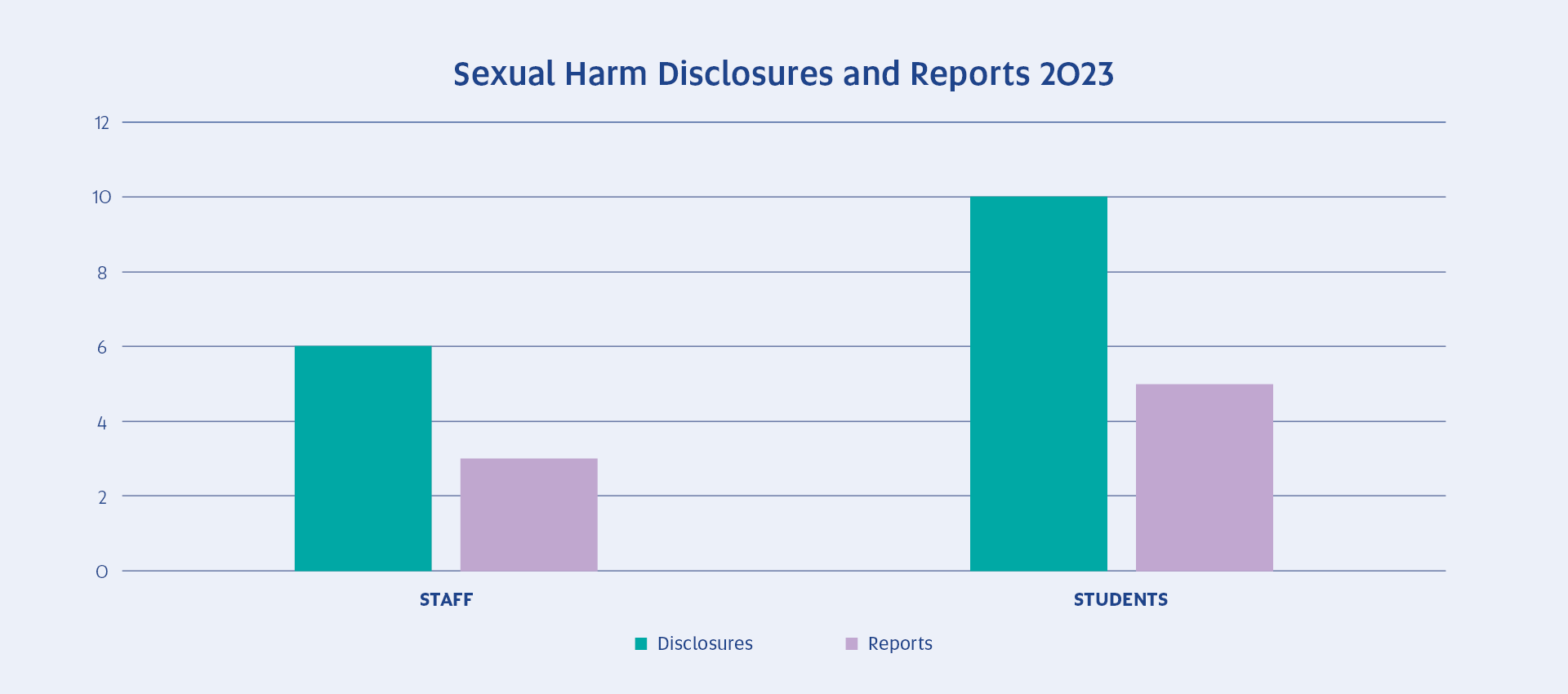What is UniSA doing to address sexual harm?
UniSA is committed to creating a safe and respectful University community. We have taken actions in key areas to address sexual harm. However, our work is ongoing and we continue to review our processes, reflect on evidence-based practice, and engage with staff and students on these issues
Key initiatives at UniSA
Since the 2017 Australian Human Rights Commission Change the Course Report, UniSA has taken the following actions:
- Created specific Sexual Harm Policy and Procedures, which have been regularly reviewed. The Policy takes a trauma-informed, survivor-centric approach to addressing sexual harm and supports the principles of natural justice.
- Developed a confidential online form for students and staff to report sexual harm.
- Established a Sexual Assault and Sexual Harassment (SASH) Steering Group that is responsible for effective implementation of sexual harm policy and procedure and embedding these across the University as part of core business.
- Appointed a Specialist Counsellor to provide specialist support to students who have experienced sexual assault and deliver training to staff and students across UniSA. The Counsellor can be contacted through UniSA Counselling Services.
- Created the First Responders network of staff in key roles across the University who are trained to provide support and respond to disclosures of sexual harm.
- Appointed a Coordinator: SASH Response and a Coordinator: SASH Prevention to provide specialist expertise and coordination of UniSA’s prevention and response strategy.
- Become a signatory to the Universities Australia Charter on Sexual Harm.
- Conducted research reviews into best practice training activities and continue to review our approaches to preventing and responding to sexual harm.
- Developed and implemented mandatory training for staff about the drivers of sexual harm and how to respond to disclosures.
- Developed and continue to provide a range of online and in-person training students across the University about sexual harm.
- Continue to deliver regular communications activities for staff and students about sexual harm, including the development of videos, fact sheets, posters, and more.
- Continue to deliver a range of events in-line with national and international health promotion campaigns, including presence at on-campus events to raise awareness about sexual harm, how to report and where to get support.
What is UniSA working on now to address sexual harm?
Growing a respectful, safe and thriving University community is a continuous commitment. Current work in addition to key initiatives covered above include:
- Broadening in-curriculum delivery of introduction to sexual harm, active bystander and responding sensitively to disclosures modules to additional programs.
- Planning towards the National Higher Education Code to prevent and respond to Gender-based Violence standards and compliance reporting.
For more information about UniSA’s work to address sexual harm, please see the SASH website or contact respect@unisa.edu.au.
Disclosures and reports of sexual harm at UniSA
(1 January 2023 to 31 December 2023)

All complaints received via the SASH online reporting system were responded to within one working day and were managed and resolved in line with SASH policy and procedures.
